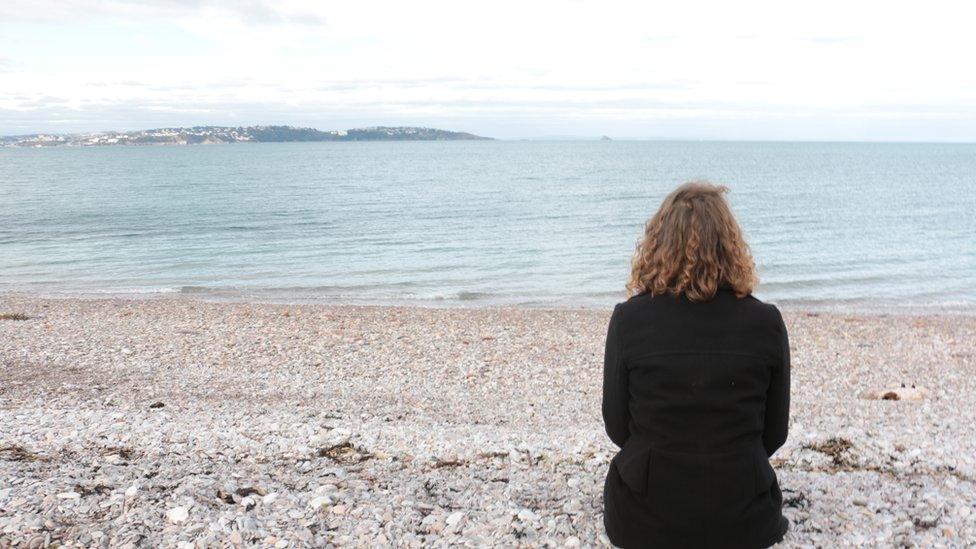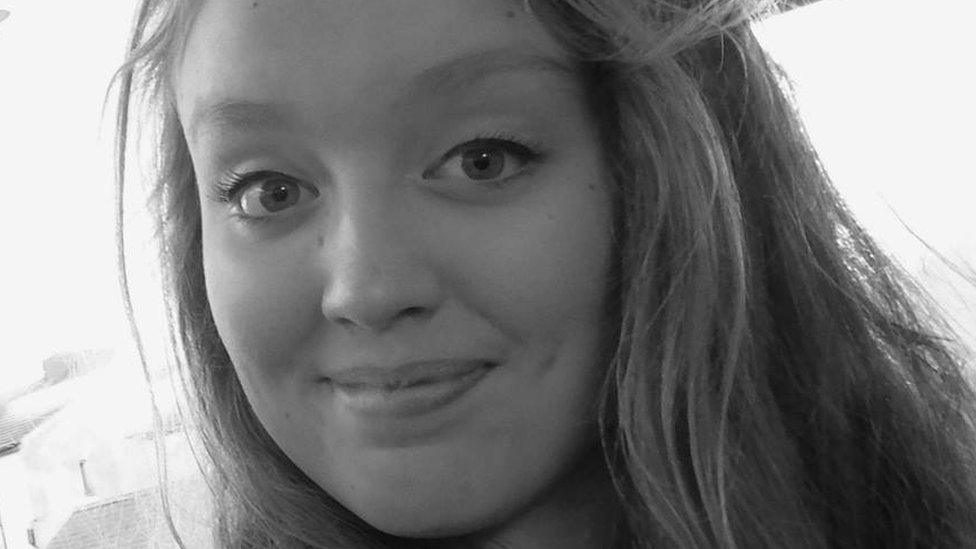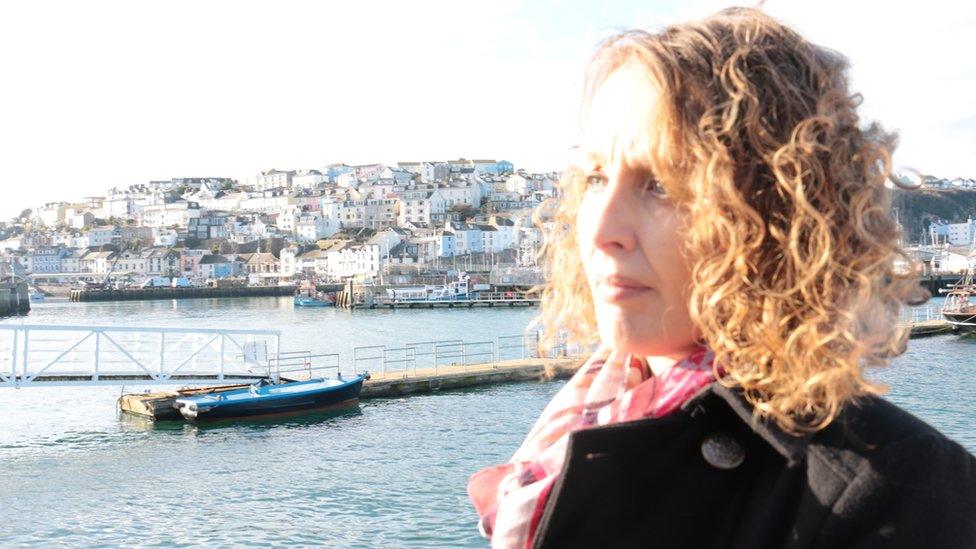Izzy Dix's mum describes 'living nightmare' two years after suicide
- Published

Gabbi Dix says the beach was one of Izzy's favourite places to go
"I just wouldn't want anyone else to feel like this," says Gabbi Dix. "It's a living nightmare."
Two years ago, her only daughter, 14-year-old Izzy, took her own life.
"I didn't even consider that suicide would be on her radar or something that she would be pushed to," Gabbi says.
"I've spoken to a lot of other parents that have lost children and they say the very same thing. You don't think it's going to happen to you until it happens."
All this week Newsbeat investigates the circumstances surrounding her death as we look at her life in the months beforehand.

Izzy had spent a lot of her life in Australia before moving back to the UK in 2011
According to the charity Papryus, more than 1,600 people in the UK aged below 35 take their own lives each year.
A total of 6,233 suicides were registered with the Office for National Statistics (ONS) in 2013. The figures relate to people aged 15 and over.
"No matter who's around me, supporting me, it's a very lonely existence because I don't think that, unless you've experienced such a huge loss..." says Gabbi, trailing off.
"I try not to be a burden on people. I try to cope with the different levels of grief as well as I can really."
BBC Advice has more help and information for dealing with feelings of suicide.
Gabbi, who lived with Izzy in Devon, says she spent the first year after her daughter's death in a "fog" and that as time has gone on, "you know it's happened but it still doesn't feel real".
Listen to the first podcast of The Story of Izzy Dix - Who was Izzy Dix?, external
At the inquest into Izzy's death, the coroner was told her diary showed that she had been struggling with her emotions and had previously thought about suicide.
The inquest also heard that she had had a row with Gabbi the night that she took her life and that there was no evidence Izzy had been bullied online.
Gabbi disputes these claims - and says that not getting a "form of truth" has hindered her grieving process.
"I don't think I'm able to rest until the truth has been told about my daughter," she says.
Gabbi says she tries to hold on to the knowledge she did her best for Izzy.
"What I've learnt is with any suicide, or any death in anybody's life, especially the sudden death of a child, you feel a certain amount of guilt which you soul-search for anyway, regardless of the circumstances," she says.
"I know I fought for my daughter and tried the very best that I could with the knowledge I had."
Like many teenagers, Izzy did "struggle" with negative emotions and mood swings, says Gabbi.
"I think in my private moments, I think that's what is the most painful, the struggle that she had prior to her death," she says.
She says that bullying, both on the internet and social media, as well as offline, had an impact on how Izzy felt about herself.
"She was an extremely confident girl, but it was the isolation and the continuing isolation from friendship groups and social situations that I think chipped away at her," she adds.

Gabbi says the time since Izzy's death has been a 'living nightmare'
Naomi Gilchrist is a volunteer with The Samaritans. The 22-year-old has herself lost friends to suicide.
Her experiences led her to work with the charity's DEAL (Developing Emotional Awareness and Listening) programme, helping young people to get the skills needed to manage life's challenges.
She says talking honestly and responsibly about suicide can hopefully prevent more people from ending their own lives.
"It is a bit of a taboo thing because I think when a person is going through mental distress, they do feel so isolated," she tells Newsbeat.
"It is really hard for the family and friends left behind to understand because often they say, 'Why didn't they just talk to me?'
"And you think, why didn't I see this coming?"
Gabbi believes that suicide shouldn't remain a taboo.
"If it's talked about then young people are able to express how they feel, therefore that will have a knock-on effect of saving lives," she says.
Knowing that she can't ever get Izzy back, she says the next step is to stop anyone else from going through what she has been through.
"I died the day Izzy died," says Gabbi.
"So I continuously have to remind myself to keep going for Izzy and for her legacy and her memory."
Follow @BBCNewsbeat, external on Twitter, BBCNewsbeat, external on Instagram, Radio1Newsbeat, external on YouTube and you can now follow BBC_Newsbeat on Snapchat